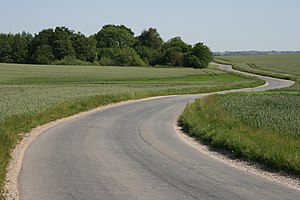User:Idevries/presentation2
From WikiEducator
Contents
TRU Lunch Presentation
About the OERu
What it is/what it isn't
- Sponsored by the OER Foundation
- Collaboration of like-minded institutions
- Not a university in the institutional sense
- Virtual presence in WikiEducator wiki
- Same wiki as Wikipedia
- Some distinctives
- Open peer review
- Open public input
- Open educational resources
- Open textbooks
- Open file formats
- Open source software
- Open enrollments
- Open awareness
Goals
- Low-cost learning to all students worldwide using OER learning material
- Courses and programs based solely on OER
- Pathways to earn credible post-secondary credentials
- Models of scalable and low cost learner support
- Opportunities for new educational models providing value added services in a disaggregated model
|
Open educational resources include:
Source: Hewlett Foundation, 2007 |
How it works
Components
|
Open:
|
TRU's involvement with OERu
Founding anchor partner
TRU has been a member from the very start = Founding Anchor Partner
Implications
- Contribution of two courses
- ART 100 Art Appreciation (from Saylor)
- To be determined (possibly Sustainability)
- Ensuring course quality
- For courses contributed by TRU: Faculty review, standard course approvals
- For other courses: based on OERu quality processes and granting institutions' alternative credit policies
- OERu principle is to respect all participant institutions' own standards and processes
- Determining how to give credit for courses
- Still under discussion by joint committee
- Options include commercial exams, PLAR (portfolio, assignments, exams, etc.), transfer credit
- Proposal to take course forward as TRU course
Benefits to TRU
International collaboration
- Next annual meeting at TRU this Fall - partners from around the world to attend - Sir John Daniel will attend and speak
Access to courses developed by others in OERU
Tremendous learning experience for participants
- Gets us working hands-on with OER and open educational practices
- Finding, working with, repurposing, creating OER
- Getting to know how to work with alternative licensing e.g. (Creative Commons)
- Working in an open wiki platform
- Collaborating openly in developing courses
- Learning open educational approaches from the inside out
- Catalyst for discussion and change
Advances our Academic Plan
E.g.:
- Increased faculty engagement in the scholarship of teaching and learning
- Additional domestic and international degree options, such as dual-, joint-, and Masters degrees, with partner institutions
- International “virtual or distance” projects and collaborations at the research, operational, and assessment stages, including distance study with other Open and Distance universities and other institutions offering multi-modal learning
- Enhanced local, national and international partnerships, including programs created with external partners in Aboriginal communities, industry, government, and NGOs
- Flexible instructional environments, including blended/hybrid delivery models, supported distance learning, service learning, field trips
- TRU continued development of the use/acceptance of Prior Learning Assessment and Recognition
- The application of principles of universal instructional design

